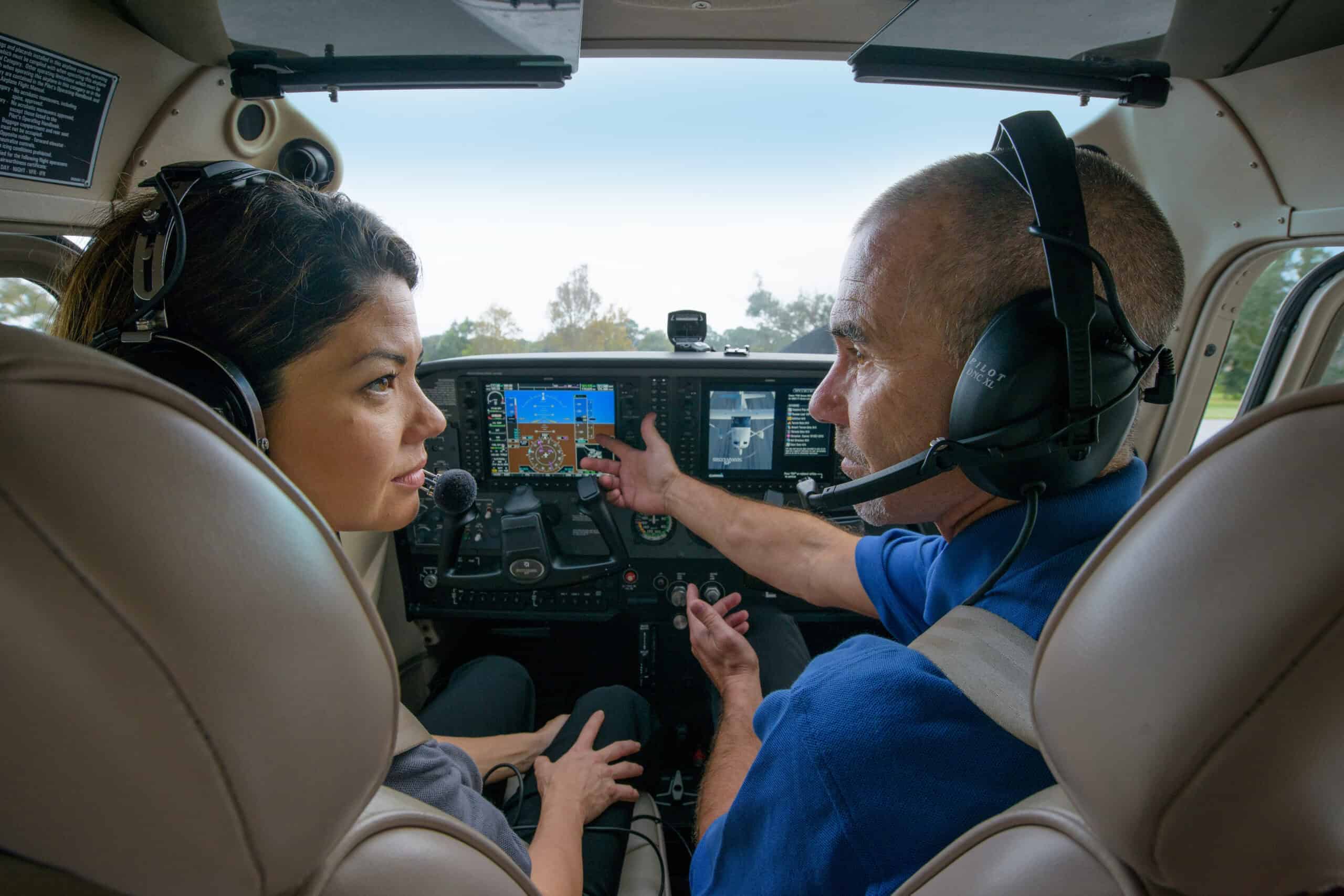Certified Flight Instructor: The Ultimate Guide to Roles and Importance

A Certified Flight Instructor (CFI) plays a vital role in India’s aviation industry, training and mentoring aspiring pilots. Certified by the Directorate General of Civil Aviation (DGCA), CFIs ensure that student pilots acquire the knowledge, skills, and discipline required for safe and competent flying.
From teaching flight maneuvers to preparing students for DGCA exams and checkrides, CFIs are essential to pilot training. They serve as the foundation of aviation education, guiding students through theoretical knowledge and practical flight experience.
As India’s aviation sector expands, the demand for skilled pilots continues to rise. CFIs uphold training standards, ensuring pilots meet DGCA’s stringent requirements and maintain aviation safety.
Becoming a Certified Flight Instructor is also a strategic career move for pilots seeking to gain experience and flight hours before transitioning to airlines. With more DGCA-approved flight schools, opportunities for CFIs are steadily increasing, making it a rewarding and high-demand profession.
What is a Certified Flight Instructor?
A Certified Flight Instructor (CFI) is a licensed pilot authorized to train student pilots in flight operations, aeronautical knowledge, and aviation safety. In India, CFIs must hold a DGCA-issued Flight Instructor Rating (FIR), which allows them to provide instruction at DGCA-approved flight schools.
The primary responsibilities of a CFI include teaching flight maneuvers, ensuring students understand aviation regulations, and preparing them for checkrides. CFIs also conduct ground training, assess pilot performance, and reinforce safety protocols.
Unlike commercial or airline transport pilots, CFIs specialize in teaching and evaluating rather than just flying. While commercial pilots operate aircraft for compensation, CFIs provide structured training to student pilots, helping them qualify for their private, commercial, or airline transport pilot licenses.
Additionally, CFIs play a crucial role in building a pilot’s foundation. Their certification allows them to log flight hours while instructing, making it an attractive option for pilots looking to gain experience and meet airline hiring requirements.
Why Becoming a Certified Flight Instructor is Important
CFIs are responsible for shaping the future of aviation by training aspiring pilots. They ensure that students receive structured and high-quality education, covering everything from flight maneuvers to airspace regulations. Their guidance is critical in preparing pilots for real-world flying conditions.
Aviation safety depends on well-trained pilots, and CFIs play a key role in maintaining high training standards. By reinforcing proper flight procedures, risk management, and emergency handling, CFIs help maintain India’s strong aviation safety record. Their role in standardizing pilot training ensures that all student pilots meet DGCA’s regulatory requirements.
With India’s growing aviation industry, there is an increasing demand for CFIs at flight schools, training academies, and airline cadet programs. Many pilots choose the CFI path to gain flight hours, earn while instructing, and later transition into commercial airline jobs.
Becoming a Certified Flight Instructor offers long-term career stability. Whether pursuing a career as a full-time instructor or using it as a stepping stone to an airline position, the CFI certification provides valuable experience and career flexibility in India’s competitive aviation sector.
Key Responsibilities of a Certified Flight Instructor
A Certified Flight Instructor (CFI) is responsible for training student pilots in various flight maneuvers, navigation techniques, and emergency procedures. This includes instructing students on takeoffs and landings, stalls, steep turns, and instrument flying, ensuring they develop the necessary skills for safe and confident flying.
CFIs play a critical role in preparing students for their DGCA checkrides and written examinations. They provide both ground and flight instruction, helping students understand aviation regulations, aerodynamics, meteorology, and flight planning to pass their tests successfully.
Every student pilot must adhere to strict aviation standards, and CFIs ensure that their training aligns with DGCA regulations. They monitor students’ progress, verify logbook entries, and ensure that all required training hours and competencies are met before recommending them for certification.
CFIs are also responsible for conducting flight reviews and proficiency checks to assess pilots’ skills and ensure they maintain regulatory compliance. They evaluate a pilot’s ability to handle various flight conditions and emergency scenarios, ensuring ongoing safety and competency.
How to Become a Certified Flight Instructor
To become a Certified Flight Instructor (CFI) in India, a pilot must meet certain DGCA-mandated requirements. This includes:
- Holding a Commercial Pilot License (CPL) with a valid medical certificate.
- Completing the required flight experience and instructional training hours.
- Passing DGCA’s Flight Instructor Rating (FIR) exam.
Training and Certification Process
The CFI certification process involves both theoretical and practical training. Candidates must:
- Enroll in a DGCA-approved Flight Instructor Rating (FIR) program.
- Complete ground school training covering instructional techniques, regulations, and aerodynamics.
- Undergo flight training, where they learn how to teach maneuvers, evaluate students, and manage training sessions.
- Pass the DGCA Flight Instructor Rating (FIR) test, which includes a written exam, oral assessment, and a flight evaluation.
The cost of becoming a CFI in India varies depending on the flight school but generally ranges between ₹10–₹25 lakh. The duration of training can take anywhere from 2 to 6 months, depending on flight availability and the candidate’s progress.
Becoming a CFI is a valuable investment for pilots looking to gain experience, build flight hours, and advance their careers in India’s rapidly growing aviation sector.
Essential Skills and Traits of a Successful CFI
A Certified Flight Instructor (CFI) must possess excellent communication skills to effectively teach complex aviation concepts. Whether explaining flight maneuvers, airspace regulations, or safety procedures, a CFI must ensure students understand and retain critical information.
Beyond technical knowledge, CFIs must adapt their teaching style to accommodate different learning speeds. Clear and structured instruction helps students build confidence and proficiency in their flight training.
Training student pilots requires patience and flexibility, as every student progresses at a different pace. Some may struggle with specific maneuvers or concepts, requiring instructors to modify their approach and provide additional guidance.
A successful CFI must remain calm and composed, offering encouragement while reinforcing safety and procedural discipline. Adaptability is crucial, as CFIs must adjust lesson plans based on weather conditions, student performance, and regulatory updates.
In-Depth Knowledge of Aviation Regulations
A CFI must have a comprehensive understanding of DGCA regulations in India, as well as general aviation safety standards. Keeping up with updates in policies, flight procedures, and certification requirements ensures that students receive accurate and compliant training.
Since CFIs are responsible for signing off on a student’s readiness for checkrides and examinations, their knowledge and adherence to aviation rules directly impact pilot certification and safety.
Career Opportunities for Certified Flight Instructors
One of the most common career paths for CFIs is working at DGCA-approved flight schools. These academies train Private Pilot License (PPL) and Commercial Pilot License (CPL) candidates, providing CFIs with steady opportunities to gain flight hours and teaching experience.
Many airlines in India have structured cadet programs that require CFIs to train future airline pilots. These positions often offer higher salaries and long-term career stability, making them a preferred choice for experienced instructors.
Some CFIs choose to work as independent flight instructors, offering private lessons to students who own aircraft or seek flexible training schedules. Additionally, corporate aviation companies hire CFIs to train private and business jet pilots, expanding career opportunities beyond traditional flight schools.
For many CFIs, becoming a flight instructor is a strategic step toward an airline career. CFIs build valuable flight experience and total logged hours, meeting the minimum hour requirements for airline pilot positions.
Since airlines prefer pilots with strong training backgrounds, CFIs often transition to First Officer roles after accumulating the necessary experience. This makes flight instructing one of the most effective pathways to a commercial airline career.
Salary and Job Outlook for CFIs
The salary of a Certified Flight Instructor (CFI) varies depending on experience, location, and the type of training institution. In India, entry-level CFIs can earn between ₹40,000 and ₹80,000 per month, while experienced instructors at leading academies may earn over ₹1.5 lakh per month.
In other regions, such as the United States, Europe, and the Middle East, CFIs generally earn higher salaries. In the U.S., the average salary ranges from $25 to $50 per flight hour, with annual earnings between $35,000 and $80,000. CFIs in the Middle East or China may earn even more due to the high demand for pilot training.
Industry Demand and Future Job Prospects
The demand for CFIs is rising due to the global pilot shortage and increasing airline expansion. In India, DGCA-approved flight schools are actively recruiting CFIs to meet the growing demand for commercial pilots. The Boeing Pilot and Technician Outlook predicts a need for over 600,000 new pilots worldwide by 2040, ensuring strong career stability for CFIs.
Factors That Affect Earnings
Several factors influence a CFI’s earning potential, including:
- Experience Level – Senior CFIs with thousands of flight hours earn more.
- Location – Flight schools in major aviation hubs like Delhi, Mumbai, and Bangalore offer competitive salaries.
- Certification Level – CFIs with additional ratings, such as Instrument Instructor (CFII) or Multi-Engine Instructor (MEI), command higher pay.
Conclusion
A Certified Flight Instructor (CFI) plays a crucial role in aviation by training the next generation of pilots, ensuring high safety standards, and shaping the industry’s future. Their expertise not only helps students achieve their pilot certifications but also strengthens aviation as a whole through rigorous training and adherence to regulations.
Despite the challenges, becoming a CFI is a rewarding career path that offers valuable flight experience, diverse job opportunities, and the satisfaction of mentoring aspiring pilots. For those passionate about aviation and eager to contribute to pilot training, pursuing a CFI certification is a meaningful and strategic step toward long-term success.
Contact the Florida Flyers Flight Academy India Team today at +91 (0) 1171 816622 to learn more about the Private Pilot Ground School Course.



Table of Contents






